Fortune Street
Template:Infobox Fortune Street (also known as Boom Street in Europe and Australia) is a Wii game developed by Square Enix. It is a follow-up to the Nintendo DS game Itadaki Street DS and is the first Itadaki Street title that was released outside of Japan.
Gameplay
Four players (excluding the play system in Tutorial mode, where only three characters play) go around the board and buy shops. Some squares involve special attributes, such as Take-a-break squares (when a character lands there, all of his or her shops will close until the player's next turn) and Venture (like a Chance space in Monopoly) squares. Players also have the ability to invest money in their own shops when they land on them. If the player manages to get all four suits (heart, spade, diamond, and club), and return to the Bank (also the starting space) they can get a promotion. When a player gets a promotion, they get money for their salary, a shop bonus which is based off of how much their shops are worth, and how many they own, as well as a promotional bonus (extra money given to the player that increases as they level up). The player's level also goes up when they get a promotion. There are two different ways to play, the Easy rules and the Standard rules.
Standard Rules
In the Standard rules, there are districts on the board and a simplified stock market. If the player has more than one shop in a district, both shops will expand, meaning the shop's value, prices, and Max. Capital (the amount of money that can be invested into a shop) will all increase.
Stocks can be purchased at the bank or a stockbroker square, but only 99 can be bought in one district at one given time; despite that, stocks can be sold at any time before a player's turn. Stocks can increase or decrease in value at any time. An increase of shop values or a large purchase of stock at one time will increase the stock value in that district. Contrariwise, a decrease of shop values or a large sale of stock at one time will decrease the stock value in that district. Like shops, stocks are assets, and therefore, they will not decrease net worth when purchased. When stocks increase or decrease in value, only the player's net worth will be affected. This is dependant on two things: how many stocks owned in that district, and by how much the stock value fluctuates. For example, if a district's stock value increases by 5G, a player who owns 200 stocks in that same district will gain a 1000G bonus in net worth.
Exclusive to Standard rules are vacant plots. These spaces allow a player to build upon the land. A vacant plot can be changed, or 'renovated', at any time before the player rolls the dice block. The following buildings can be built on vacant plots:
- Checkpoint - Any opponent who passes or lands on this space has to pay the indicated toll; afterwards the toll increases by 10G per pass; if the player who owns the checkpoint lands on this space, he/she can invest in any other shop he/she owns
- Circuis Tent - Any opponent who lands on this space has to pay the indicated price; if the tent owner lands on this space, he/she can expand the circuis like a shop
- Balloonport - Any opponent who lands on this space has to pay the indicated price; if the port owner lands on this space, he/she can travel to any space at no charge
- Tax office - Any opponent who lands on this space has to pay 10% of his/her net worth; if the office owner lands on this space, he/she gains a 5% net worth bonus
- Home - Any opponent who lands on this space has to pay the indicated price; if the home owner lands on this space, he/she can make every other player go to that space
- Estate Agency - This acts like a 'take a break' space to any opponent who lands on this space; if the agency owner lands on this space, he/she can buy any unowned shop as long as at least one shop is unpurchased
- Three-Star Shop - The player can build a shop with a starting value of 1000G; this acts like any other shop space until it's renovated
Three-Star Shops cost 1000G to renovate; everything else costs 200G.
Easy Rules
In Easy rules, there are no stocks, no vacant plots, and no districts, making the game more accessible for new players. To expand shops further, the player will have to buy shops in a row. The row's maximum potential length depends on its location on the board since suit squares, venture squares, the arcade, and the bank divide certain sections of the board.
Spaces
- Shops - The most common squares, these are the main focus of Fortune Street. A shop can be purchased as long as the player has enough assets (i.e. ready cash, stocks, etc.) in possession. Purchasing or investing in a shop doesn't decrease net worth, but it costs ready cash to do so.
- Venture - This square allows a player to choose a card from a random selection of 64 cards. There are 128 cards in total, but some are exclusive to Standard rules.
- Suit - These squares hold one of the four suits. If a player lands directly on it, it acts like a venture space.
- Changing Suit - This is just like a Suit space, except it cycles through all four suits as players pass it.
- Backstreet - Either a warp space or a Warp Pipe, these squares take the player to the connecting square of the same colour.
- Take a Break - This square makes the player's shops close for one turn.
- Vacant Plot - Exclusive to Standard rules, these squares allow a player to build upon the land. In Standard rules Free Play, the amount of vacant plots can be set in the custom rules.
- One-Way Doors - In boards like Robbin' Hood Ruins and Bowser's Castle, these doors take the player to a different part of the board.
- Comission - There are two types: boon (20%) and boom (60%). Landing on these give the player a comission of all sales made for one turn.
- Arcade - This square allows the player to play a minigame.
Characters
All twenty-five characters from Itadaki Street DS return, with the addition of four new characters for a grand total of twenty-nine. Players can also use and customize their Miis in the game.
Miis are the only playable characters in single-player mode. In multiplayer, players can only choose between the Mario and Dragon Quest characters. Each computer character is ranked from S, A, B, C, D in terms of difficulty (S being the highest, and D being the lowest) which means each computer character has a predetermined difficulty. Even the player beats either all the Easy Tour boards or all the Standard Tour boards, they will have the ability to switch the computers' difficulty from S rank to their normal rank.
Playable in Multiplayer Mode
Mario series
black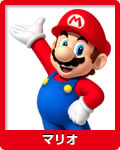 Rank A |
black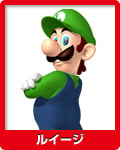 Rank C |
black*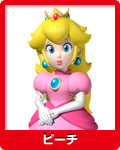 Rank S |
black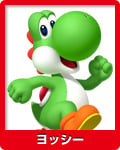 Rank B | ||||
|---|---|---|---|---|---|---|---|
black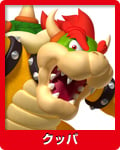 Rank A |
black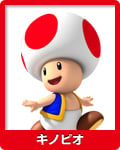 Rank C |
black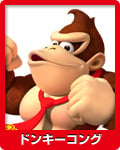 Rank D |
black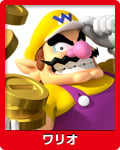 Rank B | ||||
black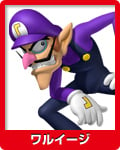 Rank C |
black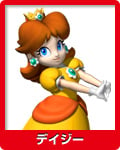 Rank C |
black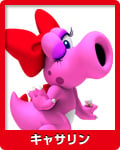 Rank D |
black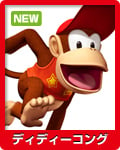 Rank D | ||||
black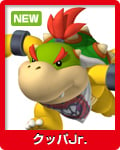 Rank A |
* - Unlockable character
Dragon Quest series
Template:Color-link-piped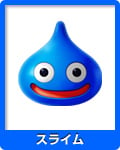 Rank D |
black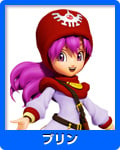 Rank C |
black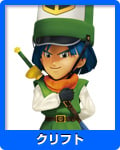 Rank C |
black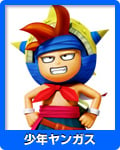 Rank D | ||||
|---|---|---|---|---|---|---|---|
black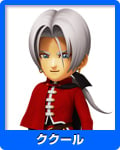 Rank A |
black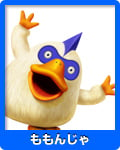 Rank C |
black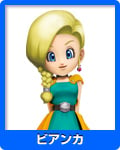 Rank B |
black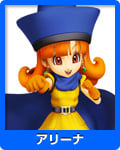 Rank B | ||||
black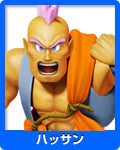 Rank C |
black*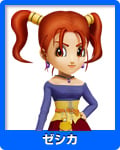 Rank S |
black*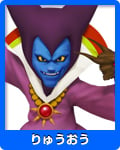 Rank S |
black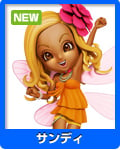 Rank B | ||||
Template:Color-link-piped*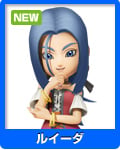 Rank S |
* - Unlockable character
Unlocking Criteria
| Character | Unlock Method |
|---|---|
Other
Non-Playable
- Heal Slime
- Dancing Jewels
- She-Slime
- Metal Slime
- Rockbomb
- Lakitu
- 8-bit Goomba
- 8-bit Koopa
- 8-bit Buzzy Beetle
- Toads
- Yoshis
- Shy Guy
- Pianta
- Noki
- Boo
- Bob-omb
- Bullet Bill
- Chain Chomp
- Luma (species)
- Dry Bones (species)
- Thwomp
Boards
Super Mario Tour
Dragon Quest Tour
Special Tour
- Alefgard (unlockable)
- Super Mario Bros World 1-1 (unlockable)
- Bowser's Castle (unlockable)
- Good Egg Galaxy (unlockable)
- The Colossuss (unlockable)
- Alltrades Abbey (unlockable)
Unlocking Criteria
| Board | Unlock Method |
|---|---|
Minigames
- Round The Blocks - This is essentially a game of slots. The player can get three 7s in a row and get 500 gold coins (the game's currency, shortened as gold or simply g ) times their level, get three warp pipes or wings (depending on the board, Mario or Dragon Quest) in a row to warp, three stock icons to get a set amount of stocks in one district if playing standard mode, three Suit Yourself Cards (these are like wild cards; they can act as any suit the player does not have. Owning one Suit Yourself Card means the player could only collect three suits and still get promoted) in a row to get one of the afore-mentioned cards, or get 3 mushrooms or Slimes (depending on the board) to get 50g times the players level.
- Memory Block - The player chooses from a number of boxes to get either a 1-Up mushroom which makes all of their shops increase by 10%, a card with a coin which gives the player 10G multiplied by their level, a Suit Yourself Card, 5 stocks in a district, or a card with Bowser's face on it which makes all of their shops decrease by 5%.
- Dart of Gold - The player throws a dart at a wheel that has different items that can help the player(s) or hurt them. Once the player throws the dart and hits an item (a treasure chest containing 100G times a player's level, a gold coin worth 10G times a player's level, three gold coin worth 30G times a player's level, stocks, and a Suit Yourself Card), throw another dart at a diferent wheel that has all the player's faces on it, as well as a space that has everyone's faces on it. If the dart hits one player's space then they get the prize/punishment but if the dart hits the space with all the faces, then everyone gets the prize/punishment.
- Slurpodome - Players chose different colored Slimes to see which one will make it to the end first. Along the way, the treasure chest will open and reveal one of many things: a gold coin worth 10G times the player's level, a Mimic which knocks the Slime out of the race, a Munchie which does nothing to affect the race, or a seed of agility which increases the Slime's speed. Sometimes, Rockbombs will roll onto the track and knock a Slime out of the race. Whoever gets their first wins the most money (100G times their level plus any coins they collect), however since players collect coins along they way, any players with surviving Slimes will get some money (never more than about 50G each)
Gallery
Quotes
- Main article: List of quotes in Fortune Street
References to Other Games
- Super Mario Bros.: The World 1-1 stage is based off the same level from this game. Additionally, the main theme of this board is a remix of the overworld theme of this game.
- Super Mario Bros. 3: During the score tallying screens, a remix of the original Toad's House theme can be heard. A remix of the Pipe Maze map theme also plays in the stock menu.
- Super Mario World: A remix of the final boss theme is available. Remixes of the athletic theme are heard in a variety of the available mini-games. A remix of the bonus stage music is heard in the minigame Round the Blocks
- Super Mario Kart: The Mario Circuit board stage's theme is a remixed version of SNES Mario Circuit.
- Super Mario World 2: Yoshi's Island: A remix of the title screen music for this game plays as the main theme for the Yoshi's Island board. Also a remix of the athletic theme is heard in the Venture square.
- Super Mario RPG: Legend of the Seven Stars: The main theme of the Peach's Castle board is a remix of the Peach's Castle theme from this game.
- Super Mario Sunshine: Delfino Plaza returns as a Mario series board. A remix of its original theme is the main theme of this board.
- Wario World: Wario mentions the Black Jewel in one of his quotes, who was the main antagonist of that game.
- Mario Superstar Baseball: The Mario Stadium returns as one of the Mario series boards.
- New Super Mario Bros.: A remix of the Bowser's Castle theme can be heard at certain boards. Gaining a level with a Mario series character causes a remix of the level complete theme from New Super Mario Bros. to be played.
- Super Mario Galaxy: The Good Egg Galaxy returns as a Mario series board.
- Mario Party DS: If a player draws venture card #88, all other players swap positions. This is a reference to the Happening Space in Kamek's Library that will occasionally cause Kamek to cast "Kamek Spell No. 88", which has the same effect.
- Mario Kart Wii: The Mario Circuit board resembles the Mario Circuit from this game.
- New Super Mario Bros. Wii: The Toad House mini-games feature a remix of the Toad House theme from this game.
- Super Mario Galaxy 2: Starship Mario returns as a Mario series board.
- Mario Sports Mix: The victory animations for the Mario series characters resemble the animations from this game.
- Luigi's Mansion: One of Luigi's quotes mentions the Poltergust 3000.
- Yoshi's Cookie: Many of Yoshi's quotes mention cookies.
Media
Names in Other Languages
References
External Links
- Official Japanese Website
- Official North American Website
- Official European Website
- Official Australian Website